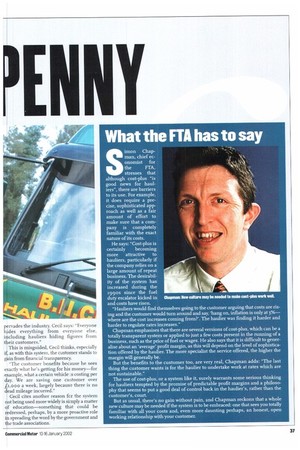What the FTA has to say
Page 37

If you've noticed an error in this article please click here to report it so we can fix it.
Simon Chapman, chief economist for
the FTA, stresses that although cost-plus "is good news for hauliers", there are barriers to its use. For example, it does require a precise, sophisticated approach as well as a fair amount of effort to make sure that a company is completely familiar with the exact nature of its costs.
He says: "Cost-plus is certainly becoming more attractive to hauliers, particularly if the company relies on a large amount of repeat business. The desirability of the system has increased during the 1990s since the fuel duty escalator kicked in and costs have risen.
"Hauliers would find themselves going to the customer arguing that costs are rising and the customer would turn around and say, 'hang on, inflation is only at 3%— where are the cost increases coming from?'. The haulier was finding it harder and harder to regulate rates increases."
Chapman emphasises that there are several versions of cost-plus, which can be a totally transparent system or applied to just a few costs present in the running of a business, such as the price of ft/RI or wages. He also says that it is difficult to generalise about an 'average' profit margin, as this will depend on the level of sophistication offered by the haulier. The more specialist the service offered, the higher the margin will generally be.
But the benefits to the customer too, are very real, Chapman adds: "The last thing the customer wants is for the haulier to undertake work at rates which are not sustainable."
The use of cost-plus, or a system like it, surely warrants some serious thinking for hauliers tempted by the promise of predictable profit margins and a philosophy that seems to put a good deal of control back in the haulier's, rather than the customer's, court.
But as usual, there's no gain without pain, and Chapman reckons that a whole new culture may be needed if the system is to be embraced: one that sees you totally familiar with all your costs and, even more daunting perhaps, an honest, open working relationship with your customer.
















































































































































